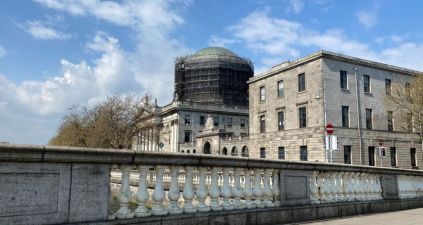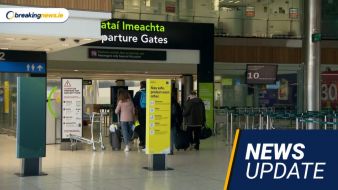A couple who came to Ireland after allegedly being subject to politically related violence in their native Albania have won their High Court challenge over being refused international protection here.
Mr Justice Max Barrett said certain findings by the International Protection Appeals Tribunal when dismissing the couple’s appeals were “hopelessly illogical”.
He quashed the IPAT decisions and directed the appeals be reheard in line with his judgment.
The judge noted the man, referred to as Mr Sula (not his real name), had said in his protection application he had rented a bar-café in Albania and joined the Democratic Party there because he “wanted to take back the properties taken from me during the Communist dictatorship”.
Mr Sula said he actively supported the Democratic Party in the 2017 general election campaign and claimed he was abducted and threatened by masked and armed political opponents as a result and told he had to leave Albania.
Mr Sula said he felt very bad psychologically when the Socialist Party won the election. Some politicians who won the election are involved in organised crime and the Mafia and the election was corrupt, he claimed. He was not saying all the people in his own party “are the best when it comes to this but, as we say in Albania, ‘There’s no forest without pigs’.”
Threats
He claimed, some two days after the election, his wife called him, terrified, saying two unknown people had threatened her and pushed her out of the bus. The couple claimed, as a result of their experiences, they fled Albania and came to Ireland seeking protection.
In their High Court proceedings, they challenged findings of IPAT including concerning their credibility.
Mr Justice Barrett noted IPAT had accepted Mr Sula was an active member of the Democratic Party, that a medical report corroborated his claim of being struck in the right eye, that the political situation in Albania is fraught and the Albanian mafia have, and continue to commit, “atrocious crimes” and there were credible claims of political corruption of the ruling party.
However, IPAT went on to conclude the type of political intimidation alleged to have happened against Mr Sula and his wife had “no support” in Albanian country of origin information (COI). It rejected Mr Sula’s claim of being abducted and wanting to leave on the basis of working for the political opposition during the election.
Having considered case law on the correct approach to credibility assessment, the judge said the IPAT conclusions, given the evidence it accepted, were “hopelessly illogical, unreasonable “and perhaps even irrational”.
'Gut sense'

An implicit consequence of the IPAT analysis is that Mr Sula would have had a stronger claim to protection if he could show he was not a member of the Democratic Party but rather a “generic” opposition supporter as he would then come within the more generalised COI he had provided, the judge said. “One need merely state this proposition to see, with respect, how illogical it is.”
It was not open to IPAT, when confronted with uncontradicted evidence supporting a claim for international protection, to reject the probity of that evidence on a “gut sense” basis that more detail would have been desirable, he said.
There was also a deficiency in IPAT’s reasons for finding against Mr Sula, he said. The tribunal failed to explain its “odd” conclusion that a general reference to voter intimidation in the Albania COI could be interpreted as excluding members of the opposition party.
The IPAT decision never actually addresses the (un)reliability issue and instead states it would have preferred alternative evidence which it had looked for but was unable to find, he said. That was not a good reason for rejecting evidence to which it did have access.







